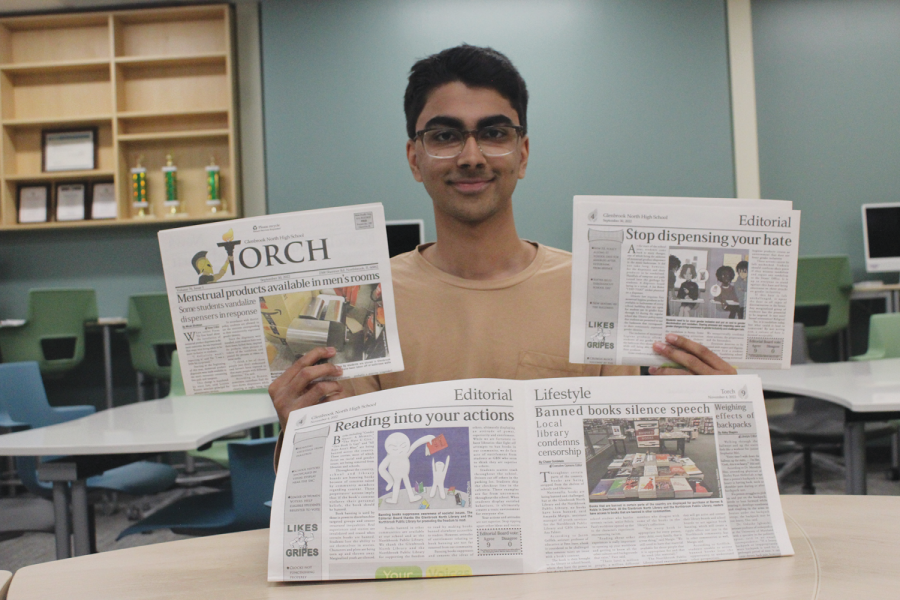Tell the stories that matter
I’ve spent the past three years learning about the fundamentals of journalism. Reporting with accuracy, interviewing sources and adhering to journalistic writing standards are now second nature to me. This experience on the Torch has helped me realize why journalism is so essential, a lesson I didn’t previously appreciate and I feel is often forgotten.
Before the school year started, I thought hard about what my goals were for producing the Torch as the Editor-in-Chief. Report how? Interview who? Write about what? I’m very interested in learning about social issues, and I felt my time as the paper’s leader needed to reflect that passion.
My primary goal for the Torch this year was to write about pressing national issues and localize these stories to our community. I’d argue we did just that.
The Torch staff published content about abortion. Antisemitism. Threats to gender inclusivity. Affirmative action. Microaggressions. Gender divides in teaching. Patriarchy and gossip. Banned books. Mass shootings.
And yet, some students have taken issue with our coverage. They’ve said our paper is too liberal. They mocked and vandalized a news article about the installation of menstrual product dispensers in the men’s bathrooms. Some have even personally confronted and villainized me for articles published this year.
Maybe these students think discussing social issues is uncomfortable or unnecessary. Maybe they see journalism as a threat to the status quo, addressing issues they’d rather not read or talk about. It is, however, unfair to reduce our articles about prevalent social issues to mere “politics.” Writing articles about social issues isn’t political. It’s necessary, and the vandalism, insults and harassment this year are emblematic of a problem bigger than just the one facing our student-run newspaper at Glenbrook North.
Don’t get me wrong. Criticism is a perfectly acceptable way to engage with challenging topics and reflect on our own opinions. It’s vital to a society rooted in free speech, and opposing views to editorials and opinions are always welcome. However, there’s a difference between civil criticism and defacing newspapers, attacking journalists for believing they have political agendas and threatening their work. The latter is a direct threat to democracy, endangering the accountability and transparency journalists provide.
Journalists are being attacked, imprisoned and murdered for their work around the world. It’s a terrifying reality, one that’s threatening our ability to hear, digest and reflect on these vital stories. Whether it was The Boston Globe’s award-winning reporting on the Catholic Church’s sexual abuse scandal or The New York Times’ recent investigation into workplace exploitation of migrant children, journalism is the foundation of democracy. Journalists work extensively to report on people in power and bring awareness to important issues. When this work is threatened, we all lose access to the truth, emboldening powerful people to act with impunity. Journalists keep the truth alive.
As I write for the Torch one last time, I wonder, ‘Why is journalism essential?’ We’re opening a conversation, a dialogue that is increasingly censored as more journalists are demonized for their work. Journalists open readers to new worldviews and tell stories that are often left unheard. Sharing and reading these stories can be terrifying, but in the same breath, it’s essential.
Whether it’s here at GBN or elsewhere, everyone must use their voice to stay engaged in the conversation. Take some time to challenge your preconceived notions. Listen to opinions that are different from yours. Ask questions to deepen your understanding of the world.
Read newspapers and understand why you need to. While editorials and opinions might take a certain viewpoint, the rest of a newspaper is based on information from knowledgeable sources to address important and relevant issues. Journalism is the foundation of democracy, and when journalism is attacked, freedom is attacked.
Be active in the communities you value. Tell the stories that matter. Keep the truth alive.


